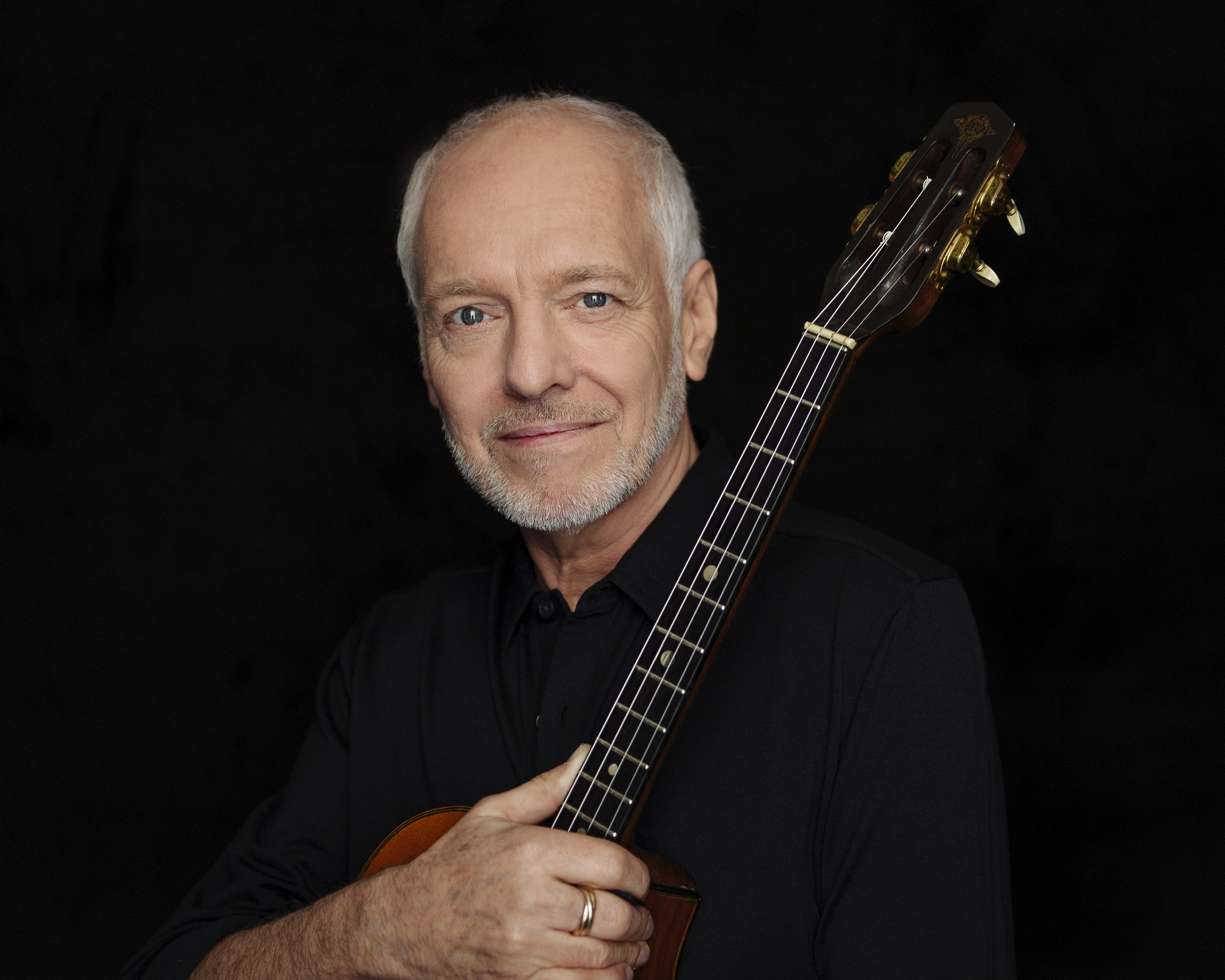By Jeff Maisey
Imagine Peter Frampton sitting in your living room plucking away at his classic hits like “Show Me the Way” and “Do You Feel Like I Do.”
That’s just the impression Frampton wanted to achieve with his 2016 album titled “Acoustic Classics.”
“The whole idea for me was to strip away 40 years of what’s happened to the songs since I wrote them,” said Frampton by telephone. “I wanted it to be as if you came over, we sat on the couch and I said, ‘Want some coffee?’ and by the way I wrote a song, would you like to hear it?’”
“Acoustic Classics” features 11 tunes ranging from the familiar FM radio played hit “All I Want to Be (Is By Your Side)” to deep cut fan favorite “Lines On My Face.”
Peter Frampton initially recorded the songs as he would any studio session, but something wasn’t quite right. He felt it sounded like he was anticipating the band to kick-in at any moment. What Frampton wanted was a more raw, clear, naked performance of each track. To achieve this he took a different approach to the recording.
“I went home and just rethought the whole thing,” said Frampton. “I came into the studio everyday and did different performances at different times throughout the day. Over a two to three month period I then picked the ones that captured it the way I felt it should come across.”
For the piano ballad “I’m in You,” Frampton recorded seven versions before settling on the one take he preferred.
“I chose the first one,” he said, followed by a big laugh, “maybe because it had that innocent performance of it because I wasn’t thinking about it too much. I was just doing it the way I remember when I originally wrote it sitting at the piano.”
The version of “I’m in You” that appeared on the studio album of the same name back in 1977 features Frampton’s voice recorded as a demo.
“We just put everything around it because of the vibe…it just goes back to the moment it was recorded had the sentiment that I needed for that song. We tried in the ‘70s redoing “I’m in You” multiple times and nothing ever came close to the original demo.”
Fans of Frampton love his use of the talk box, and even he uses it on the unplugged version of “Show Me the Way,” though he did think twice about it.
“When I wrote it I didn’t even own a talk box,” explained Frampton. “When we play live for the Acoustic Tour I don’t bring the talk box. I have the audience do the talk box part, which is hilarious and they really enjoy it.”
Though the talk box is a signature part of Frampton sound, he came across the device by accident.
“That came from meeting Pete Drake, the pedal steel player from Nashville, where I live now,” he said. “It was on the “All Things Must Pass” sessions with George (Harrison). I was playing acoustic and George flew-in Pete Drake – recommended by Bob Dylan – because he played on “Nashville Skyline with Bob. It was for one of the songs that had written together, “If Not for You.” Lo and hold, Pete Drake sets up next to me, plugs this little box in with a tube in his mouth, and all of a sudden the pedal steel started singing to me. My jaw dropped. I said, ‘What is that and where can I get one?’ The interesting thing about that talk box Pete Drake used that day was he lent that exact one to Joe Walsh that he used on “Rocky Mountain Way,” which I think is the best talk box solo ever done.”
Peter first introduced his talk box during live performances before his fourth studio album, “Frampton,” was released.
“I introduced it at the end of “Do You Feel” and it had such an intense effect on the audience that it stayed,” he said. “Joe had used it as a sound, I wanted to use it like Pete Drake did and actually speak words to communicate to the audience.”
When Frampton performs October 12 at the Sandler Center in Virginia Beach, he’ll be joined on stage by his son and producer/collaborator Gordon Kennedy.
This year also marks the 40th anniversary of “Frampton Comes Alive.”





